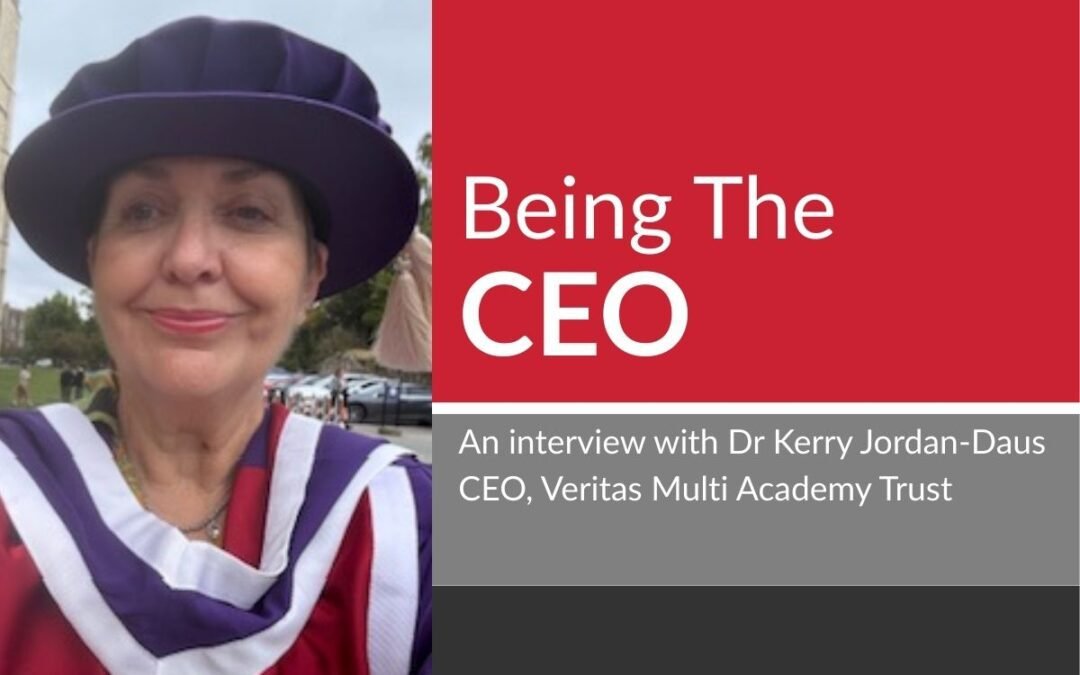
Yesterday the UK government published its long-awaited Net-Zero Strategy. The 368-page document set out how Britain will reduce its reliance on imported fossil fuels, and deliver on the government’s commitment to reach net-zero emissions by 2050. The strategy has implications for everyone, not least for academy trusts, schools, and of course, for our young people. It is a landmark moment for the next generation, for our economy and public service leaders and organisations; and academy trusts will have a crucial role to play.
We know by now just how much environmental sustainability matters to the young people that we serve. A recent survey of 10,000 young people across 10 countries – led by Bath University – revealed that nearly 60% of young people said they felt very worried or extremely worried about climate change, and three-quarters said that they thought the future was frightening. Another survey of 1300 young people led by SecEd in 2018/19 revealed that 87% were concerned that climate change will negatively affect their lives. What is so important to the lives and futures of our young people must also be important to us.
What role can academy trusts play?
According to research by Ipsos MORI, young people want to see systematic change, and they expect leadership around sustainability, not only from government, but also from the organisations that matter to them. Young people need to see that the adults around them care about the environment, and are modelling a commitment to be more sustainable, to give them hope for the future. Academy trusts can play a huge role in this, not only by educating pupils about environmental issues, but also in getting them thinking about the positive action they can take, modelling positive action themselves, and encouraging young people to get excited at the prospect of building a better, greener, world.
It is also vital for academy trusts to realise that green jobs will make up a significant proportion of the economy by the time our pupils enter the world of work. As outlined in yesterday’s Net-Zero Strategy, up to 190,000 jobs by 2025, and up to 440,000 jobs by 2030 will be in the ‘green’ industry. The Net-Zero strategy puts trusts and schools at the heart of this, stating that, “schools and colleges will play a vital role delivering high-quality education and training to equip young people with the knowledge and skills required for the green economy.” The strategic are already doing this of course.
How are we doing as a sector?
There are pockets of excellent practice in the sector. It’s clear that there is growing momentum and passion among many trusts to learn and seize opportunities, and attendance at Forum Strategy’s CEO Strategy Group on Environmental Sustainability is testament to this. More and more trusts are recognising the importance of environmental sustainability and are investing in making their estates greener, placing greater emphasis on sustainability in the curriculum, and making environmental sustainability a trust-wide priority. Strategic trusts are already using pure accountability to their communities as a way to drive positive change, ensuring there is a public and clear commitment they will prioritise sustainability and achieve key goals over a period of time.
CASE STUDY: Northern Star Academy Trust: Environmental Sustainability as a Core Trust Value and Strategic Priority
There is also a small – but gradually increasing – number of academy trusts who have not waited on government targets, and have already set net-zero targets to be achieved far in advance of the deadline of 2050 set by the government. Those trusts/schools already investing in greener energy and more energy efficient buildings will quickly benefit from financial savings in their energy costs as a result. This investor mindset may create a significant cost to budgets in the short term, but the returns through energy savings in the medium- to long-term have huge potential to eclipse these upfront costs. Chief Operating Officers have a key role.
However, there are opportunities to help with the cost. Millions of pounds of funding is available out there to support trusts with this, and these funding opportunities are regularly highlighted in our fortnightly funding briefings. For example, if you are a CEO, COO or education executive member of Forum Strategy you will have received news of the Public Sector Decarbonisation Fund over the last year, amongst other funding to support the development of more sustainable estates. Some trusts are already accessing this. The government announced yesterday that it is investing a further £1.425 billion into this fund over 2022/23 and 2024/25.
So, what’s next?
Overall, there is still a long way to go in the education sector. Many trusts are only just beginning to consider the importance of sustainability, while some have still not recognised yet just how crucial prioritising a sustainability strategy will be over the coming years. Yesterday’s Net-Zero report outlined an expectation that public sector organisations should now be monitoring their energy use, have targets to reduce emissions, should be taking steps to achieve net-zero, and should report their progress so they can be held accountable. For those who aren’t prioritising this already, take note; the report states that the government will, “also legislate to enable us to require the reporting of public sector emissions on a consistent and coherent basis if this is not done on a voluntary basis.” Both of our upcoming national CEO and COO network meetings will feature further case studies of trusts who are taking action around sustainability of their estate, and how they are doing it at relatively low cost but with significant returns.
It’s also imperative that trusts and trust leaders think carefully about how the curriculum and wider education experiences can help enthuse and prepare children and young people for the vast opportunities of the green economy. Building partnerships with those at the cutting-edge of this economy will be essential to that. A key question for trust boards and leaders is who are your key strategic partners in this?
We also have much to learn from other sectors, including public sector organisations such as the NHS, and certain organisations in the business sector, who are ahead of the curve and leading the way. Forum Strategy’s CEO Strategy Group on environmental sustainability offers trust leaders ample opportunity to learn from others already taking exciting and forward-thinking action in this arena, both within and beyond the education sector.
The Net-Zero strategy report underlines the important role of trusts and schools in achieving a greener economy, preparing young people to seize the opportunity of that economy, and combatting climate change. Leadership at all levels is now required; young people and our communities expect it.
Work & learn with us @ForumStrategyUK as we continue to champion sustainability via our strategy group and our National Networks for CEOs and COOs of academy trusts: Our Networks
Author: Rachael Gacs; Communications and Resources Manager, Forum Strategy


